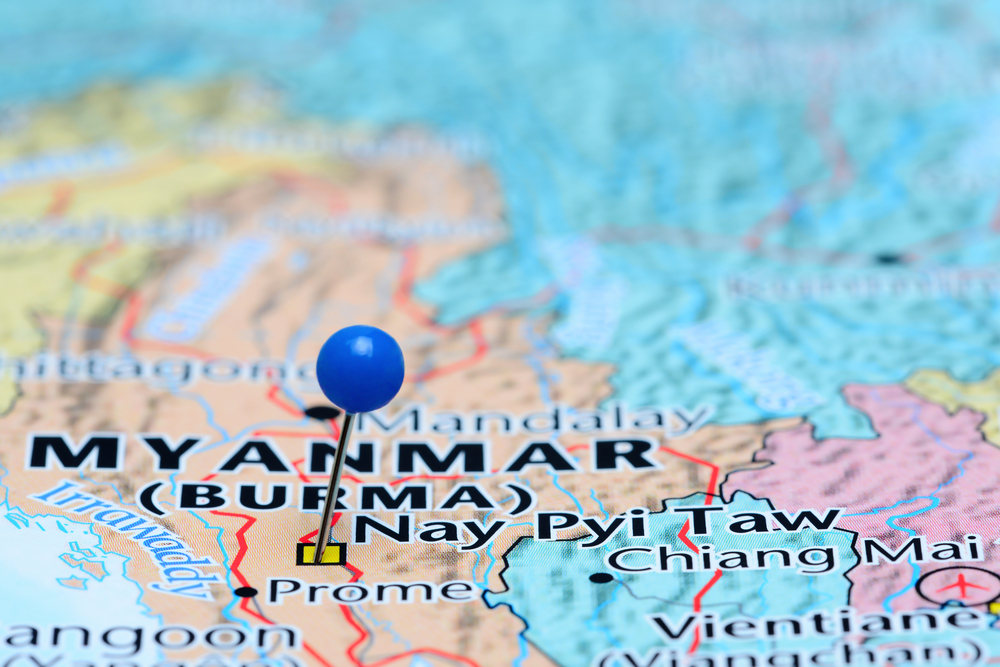Myanmar Can Work Together or Play the Blame Game

Please note that we are not authorised to provide any investment advice. The content on this page is for information purposes only.
The November 2015 election is the largest election held in the history of Myanmar in every way. It is the largest in terms of the number of candidates (6189), the number of political parties (93), the number of registered voters (23 million), the number of female candidates (13 percent) and the number of independent candidates (323). In addition, for the first time Myanmar has accepted external assistance and international election monitoring.
The November 2015 election is the largest election held in the history of Myanmar in every way. It is the largest in terms of the number of candidates (6189), the number of political parties (93), the number of registered voters (23 million), the number of female candidates (13 percent) and the number of independent candidates (323). In addition, for the first time Myanmar has accepted external assistance and international election monitoring. However, erroneous electoral rolls, campaign irregularities, public and private media bias, and inefficiencies resulting from logistical challenges are threatening the election’s credibility.
As the November election draws closer, political campaigning has reached its climax. The ruling Union Solidarity and Development Party (USDP), with obvious backing from the military, are portraying itself as a reformist party and a protector of amyo barthar tharthanar (race and religion). The opposition National League for Democracy (NLD) led by Aung San Suu Kyi is running with the slogan that ‘it’s time to change’.
Ethnic-minority parties are also campaigning hard, each presenting themselves as the most suitable representatives of their own ethnic state. There are seven, each largely dominated by a single ethnic minority. Other mainstream minor parties claim that they are giving alternative options to voters, representing a ‘third force’ in Myanmar politics. Meanwhile, Buddhist nationalists and activists are busy asserting their influence in the election in every way possible. The main contests expect to be between the NLD as a national brand and incumbent USDP candidates’ local campaign in the Burman-dominated regions, and between mainstream and ethnic parties in the ethnic states. The stakes are high.
The good news is that there have been signs of political will for a credible election. Resources are pouring in and genuine preparations made for a trustworthy election. Instead of refusing external input, the Union Election Commission (UEC) has held regular consultations with political parties and civil society organisations.
There have been bold ideas introduced. Digitisation of electoral rolls occurred for the first time. Several constituencies conducted pilot projects. Indelible ink is to be used to prevent double voting. Election police comprised of local volunteers are ready to enhance security of the polling stations. In order to boost efficiency and motivation, election volunteers will receive a US$3 payment for the first time. Moreover, 13 domestic organisations are sending 10,000 election observers.
Myanmar has also accepted various forms of international assistance for the November election for the first time. A five-year (2014–2018) strategic plan for the UEC formulated with the help of the USAID and International Foundation for Electoral Systems (IFES). Twenty-one countries will send 500 observers to monitor the election. Five prominent international organisations, the EU, the Carter Centre, the International Republican Institute, the Asian Network for Free Elections and the Netherlands-based Gender Concerns International are also observing the election on a long-term basis. Everything looks set for a smooth and clean election.
Inaccuracies in the deeply flawed electoral rolls are challenging the election’s credibility. The UEC has been blamed for incompetence and was even accused of sabotaging its own election. The overseas voting process has also been mired with missing names and ballot papers.
Some bureaucrats have posted their frustrations on social media, revealing their side of the story. They largely point out that the errors in digitising the electoral rolls were the result of the advice of the international observer organisations. For instance, they were told to input data based on two sets of population lists compiled separately by the immigration and local authorities, resulting in duplication. There were unrealistic expectations for data entry — a target of a thousand entries a day for one operator. Only two computers were used for several hundred thousand people. After days of tedious work, human error affected the quality of the data. Some officials even took matters into their own hands by switching to alternative methods.
More problems arose during the election campaign due partially to a lack of experience of competitive elections. Local and social media have been constantly monitoring political campaigns, pointing out irregularities. However, as the media, and especially social media, lacks impartiality, the election campaigns have become messy.
The credibility of the election is a litmus test for Myanmar’s nascent transition towards democracy. Expectations are high, as are the stakes. Foreign direct investment and international assistance are further linked to the election. The domestic economy is waiting for a signal from the election.
The pace of the peace process will further be determined by the electoral legitimacy of the new government. It is not the outcome of the election, but how free and fair the November election is, which matters most. Failure to conduct a transparent election would catapult Myanmar backwards, potentially bringing political turmoil, military repression and economically damaging armed conflicts.
It is undeniable that the 2015 election is more competitive and transparent than previous elections held in Myanmar’s history. It has been marred by messiness and contention. These are necessary growing pains that both politicians and the public must confront in order to take Myanmar to the next stage of its democratic transition. If they can embrace this together, rather than throwing blame at one another, Myanmar has bright days ahead.
Will growing pains mar the Myanmar election? is republished with permission from East Asia Forum




